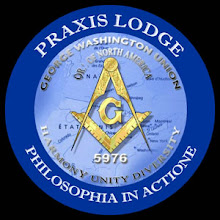U.S. Recognition of French Grand Lodges in the 1900s
By Paul Bessel
http://thebluelodge.org/essays_on_freemasonry-210/u_s_recognition_of_french_grand_lodges_in_the_1900s-15980/
OR
http://www.praxislodge.org/docs/U.S.%20Recognition%20of%20French%20Grand%20Lodges%20in%20the%201900s.pdf
Synopsis
Modern or Continental Free-Masonry, that which is derived from the Grand Orient of France, and now present in the USA as the Grant Orient of the United States, is considered “irregular” by most all Anglo-American or " Blue" lodges in the USA. This means that Modern Free-Masonry is not recognized as legitimate Masonry by Blue Grand Lodges, and Blue lodges do not allow their members to visit Modern lodges or member of Modern lodges to visit their lodges. This is only a general rule, as their are limited exceptions. This was not always the case. Prior to 1869, Grand Lodges in the US recognized both the Grand Orient of France and Modern lodges in the U.S, and allowed visitations.
However, in 1868, the Grand Orient of France recognized a Grand Orient in Louisiana (a competitor to the Grand Lodge of Louisiana), which allowed members to join regardless of nationality, race, or color. That was the beginning of Blue lodges not recognizing Modern lodges (based on the GOdF’s philosophy against slavery), but the split formally occurred in 1869 when the GOdF passed a resolution that neither color, race, nor religion should disqualify a man for initiation, and was further reinforced in 1877 when the GOdF declared its principle of “absolute freedom of conscience” and eliminated both belief in God as a membership requirement and use of the Bible in lodges.*
However, over 25% of Blue lodges in the U.S. re-recognized Modern lodges after 1918 (likely not coincidental to the US desire to have French allies during WW I). Some lodges recognized both the Grand Orient of France and the Grand Lodge of France, others accepted only one or another, for various reasons, mostly political, social, and territorial. Moreover, as the article suggests, the concept of “regularity” is highly relative and deeply immersed in ever-changing political and social ideologies.
* Prior to 1760, even the Grand Lodge of England did not require the Bible in lodges
Wednesday, August 12, 2009
Subscribe to:
Post Comments (Atom)


No comments:
Post a Comment